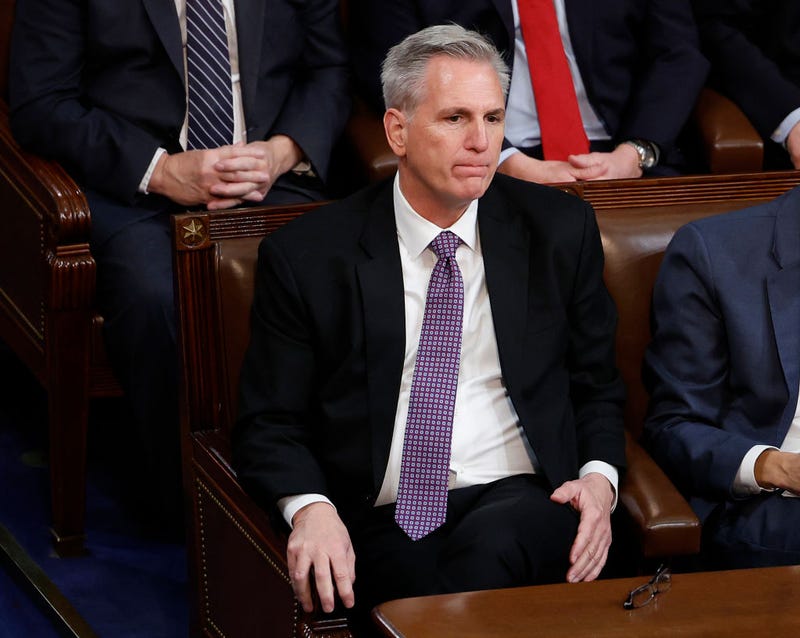
The U.S. House of Representatives is still deadlocked on a speaker.
For a third consecutive day Thursday, the House failed to select the next speaker and nominee Kevin McCarthy lost the 11th ballot.
The stage is now set for a 12th ballot, which makes it the longest-running speaker election contest in 164 years.
McCarthy needs to reach 218 votes to stake his claim to become the speaker. The House is set to reconvene at noon Friday for the fourth consecutive day of voting.
The California Republican managed to receive 201 votes on Thursday, but his tally also dwindled by one after Ken Buck of Colorado was forced to leave the session for a medical appointment. Buck is not expected to be back until mid-day Friday or even later.
A total of 11 rounds of voting have been held since Tuesday, all failing to reach the threshold needed to elect a Speaker. That's preventing the House from conducting any business -- or even swearing in new members. Without a speaker, Congress can't convene or vote on any rules, committees can't be formed, and legislation can't be passed.
A group of 20 GOP lawmakers are opposing McCarthy's bid, and have continued to hold fast despite concessions from McCarthy offered earlier this week.
One lawmaker in opposition is Matt Gaetz. The Florida Republican officially nominated former President Donald Trump Thursday after voting for him on two earlier ballots.
"I nominate President Trump because we must make our country great again, and he can start by making the House of Representatives great again," Gaetz said. When he finished, only Colorado Republican Lauren Boebert applauded.
Florida Republican John Rutherford slammed three of his fellow GOP members, including Gaetz, for drawing out the battle.
"Thanks to @RepMattGaetz, @RepDonaldsPress, & @realannapaulina, congressional offices like mine aren't able to help our constituents with casework requests while we wait to be sworn in," he said on Twitter. "The small minority obstructing the speaker election is causing real consequences for Americans."
Before this, the longest fight for speaker started in late 1855 and dragged on for two months, during debates over slavery in the run-up to the Civil War.
"There has never been more than one vote in the past 100 years. The last time this happened was 1923," when selecting a speaker lasted for three days, Drexel University political science professor Bill Rosenberg told KYW-AM.
The disorganized start to the new Congress points to difficulties ahead with Republicans who gained control of the House in the midterm elections. According to the Associated Press, a new generation of conservative Republicans, many aligned with Trump's Make America Great Again agenda, want to upend business as usual in Washington and are committed to stopping McCarthy's rise, believing he's neither conservative enough nor tough enough to battle Democrats.
McCarthy has vowed to fight to the end for the job. On Friday morning, he told reporters "We're going to make progress today, we're going to shock you".

